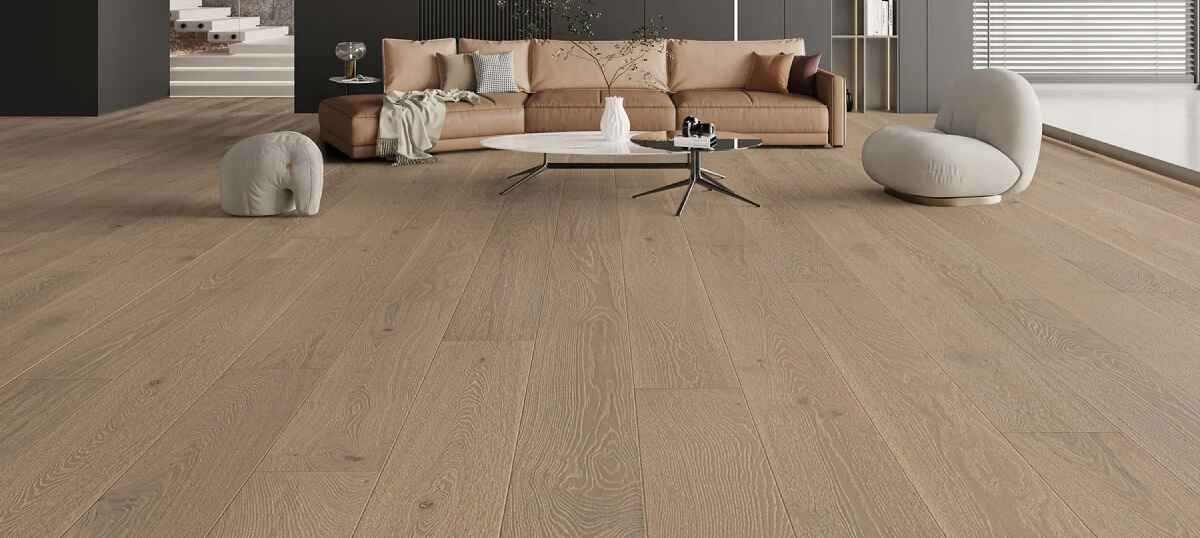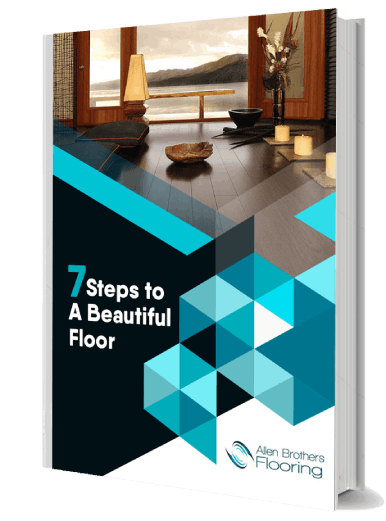
Timber floors can completely transform a home, but choosing the right type can be a challenge.
Engineered timber flooring has become an increasingly popular choice in Perth, thanks to its blend of beauty and durability.
But is it the right option for your home?
As more homeowners look to upgrade their flooring, engineered timber presents a compelling option. This type of flooring combines the natural look of timber with enhanced durability and resistance to environmental factors.
But like any home improvement choice, it comes with its own set of advantages and disadvantages.
In this article, we'll delve into the pros and cons of engineered timber flooring. We'll cover an overview of what this flooring is, provide an in-depth analysis of its benefits, discuss the potential downsides, and compare it with alternative flooring options available in the market.
By the end of this article, you'll have a clear understanding of whether this is the right choice for your Perth home. So, let's get started!
It is constructed from multiple layers of wood. The top layer is a thin slice of real hardwood, which provides the natural beauty and texture of solid wood.
Beneath this lies a core of high-density plywood or similar material, which adds stability and strength.
This layered construction method makes engineered timber less susceptible to warping and movement caused by changes in moisture and temperature—common issues in Perth's climate.
One of the main attractions is its versatility. It can be installed in various ways, including floating, gluing, or nailing down, making it suitable for a wide range of settings and subfloor types.
Additionally, it's often more cost-effective than solid hardwood while still delivering that coveted natural wood look.
Its innovation doesn't stop at its construction. It often comes pre-finished with a durable topcoat, which saves time and effort during installation.
Plus, this finish enhances the floor's resistance to scratches and stains, contributing to its long-lasting appeal.
POPULAR: WHAT IS ENGINEERED TIMBER FLOORING (AND IS IT RIGHT FOR YOU?)
One of the standout advantages is its exceptional durability and stability.
Thanks to its multi-layered construction, this type of flooring is far more resistant to the common issues that plague solid wood floors, such as warping and swelling.
In Perth's varying climate, where humidity and temperature changes can be extreme, engineered timber's stability is a major selling point.
The layered design, with a high-density core, provides structural integrity that allows it to withstand heavy foot traffic and daily wear and tear.
According to industry studies, engineered timber can last anywhere from 20 to 30 years with proper care, making it a long-term investment for homeowners.
It doesn’t compromise on looks. The top layer is made of real hardwood, offering the same aesthetic appeal as solid wood floors.
This means you can enjoy the natural beauty, unique grain patterns, and rich colours of timber, enhancing the visual appeal of your home.
Moreover, the variety of finishes and wood types available allows homeowners to choose a style that perfectly matches their interior design.
Whether you prefer the classic look of oak, the elegance of walnut, or the contemporary vibe of maple, there’s an option for every taste.
Another significant benefit is its versatility when it comes to installation.
It can be installed using several methods, including floating, gluing, or nailing down, which makes it adaptable to various subfloor types and installation conditions.
This flexibility means it can be installed over concrete slabs, existing timber floors, or even radiant heating systems. This is particularly advantageous for Perth homes, where different parts of the house may require different installation approaches.
While it offers many of the same benefits as solid hardwood, it generally comes at a lower cost. This makes it an attractive option for homeowners looking to achieve a high-end look without breaking the bank.
The savings can be substantial, especially when considering the long-term durability and low maintenance requirements of engineered timber.
Additionally, because it often comes pre-finished, homeowners save on finishing costs and enjoy a quicker installation process. This not only reduces labour costs but also minimises the disruption to daily life during the renovation.
RECOMMENDED: How Much Does Timber Flooring Cost? Price Guide
It is often touted for its environmental benefits. Since it uses a thinner layer of hardwood compared to solid timber, it maximises the use of each tree harvested.
The core layers are typically made from fast-growing trees or recycled wood products, which are more sustainable and have a lower environmental impact.
Furthermore, many manufacturers source their timber from sustainably managed forests and adhere to strict environmental standards.
For eco-conscious homeowners, engineered timber flooring provides a way to enjoy the luxury of wood while supporting sustainable practices.
While it is designed to be more durable than solid wood, it's not entirely immune to damage.
The top layer, being real hardwood, can still scratch, dent, and wear down over time, especially in high-traffic areas or homes with pets.
Unlike solid wood, which can be sanded and refinished multiple times, engineered timber usually can only be sanded once or twice before the top layer is depleted.
This limitation means that deep scratches or significant surface damage may require replacing entire planks rather than refinishing.
Although it is more resistant to moisture than solid wood, it’s not completely impervious. Excessive moisture or water damage can cause the layers to separate, leading to warping and other structural issues.
This can be a concern in areas like Perth where humidity levels can fluctuate.
Care must be taken to avoid water exposure, such as promptly cleaning up spills and using appropriate cleaning methods.
Additionally, engineered timber might not be the best choice for areas with high moisture levels, like bathrooms or basements, unless properly sealed and maintained.
While durable, it typically has a shorter lifespan compared to solid timber flooring. Solid wood floors can last for many decades and can be refinished multiple times.
In contrast, engineered timber, depending on the thickness of the top layer and the amount of wear and tear it experiences, may need replacement sooner.
This can be a drawback for homeowners looking for a truly long-term investment. The necessity of potentially replacing the flooring after a couple of decades should be factored into the overall cost and maintenance considerations.
While it can be more sustainable than solid timber due to its efficient use of wood, not all products are created equal.
Some manufacturers may use adhesives and finishes that contain harmful chemicals, which can off-gas into the home environment. This could be a concern for those prioritising indoor air quality and environmental health.
It's essential to research and choose products that adhere to strict environmental standards and certifications, ensuring that the engineered timber is both safe and eco-friendly.
While it is generally more cost-effective than solid hardwood, the price can vary significantly depending on the quality.
High-end engineered timber can be quite expensive, sometimes approaching the cost of premium solid wood flooring.
The price disparity is often due to the thickness of the hardwood layer, the type of wood used, and the quality of the core layers.
|
Pros |
Cons |
|
Exceptional Durability and Stability |
Potential for Surface Damage |
|
Aesthetic Appeal |
Sensitivity to Moisture |
|
Versatility in Installation |
Limited Lifespan Compared to Solid Timber |
|
Cost-Effectiveness |
Environmental Concerns |
|
Environmental Sustainability |
Cost of High-Quality Options |
NEW: Top 10 Hybrid Flooring Types
It offers superior stability compared to solid hardwood, thanks to its layered construction.
Solid hardwood can expand and contract with changes in humidity and temperature, which can lead to warping and gaps over time.
While both types can be installed in various ways, engineered timber’s versatility shines. It can be floated, glued, or nailed down, making it suitable for different subfloors.
Solid hardwood, on the other hand, often requires a more labour-intensive installation process. In terms of cost, engineered timber is generally more affordable, especially when considering the high-end options.
Both options offer the natural beauty of wood, but solid hardwood has the edge in longevity. Solid timber floors can be sanded and refinished multiple times, lasting for many decades.
Engineered timber, however, can only be sanded a limited number of times, which may reduce its lifespan in comparison.
Laminate flooring is made from synthetic materials designed to mimic the look of wood, while engineered timber features a real hardwood top layer. This gives engineered timber a more authentic and luxurious appearance.
Engineered timber is generally more durable and can handle more wear and tear compared to laminate, which is prone to scratches and damage from heavy impact.
Maintenance is similar for both, though laminate flooring might require less frequent attention.
Laminate flooring is typically less expensive than engineered timber. It’s also easier to install, often featuring a click-lock system that makes DIY installation a breeze.
However, for those seeking a higher-end, long-lasting flooring solution, engineered timber is worth the investment.
Vinyl plank flooring is made from synthetic materials and is highly resistant to moisture, making it suitable for areas prone to spills, like kitchens and bathrooms.
Engineered timber, while more moisture-resistant than solid wood, isn’t entirely impervious to water damage, limiting its use in such areas.
Engineered timber provides the genuine look and feel of real wood, which vinyl, despite advancements, can’t fully replicate. For those who prioritise authenticity, engineered timber is the better choice.
Vinyl plank flooring is often more affordable than engineered timber. However, it’s made from non-renewable resources and can have a higher environmental impact.
Engineered timber, especially when sourced from sustainably managed forests, is a more eco-friendly option.
|
Characteristic |
Engineered Timber Flooring |
Solid Hardwood Flooring |
Laminate Flooring |
Vinyl Plank Flooring |
|
Durability |
High |
Very High |
Moderate |
High |
|
Stability |
Excellent |
Moderate |
Good |
Excellent |
|
Installation |
Versatile |
Labour-intensive |
Easy (DIY) |
Easy (DIY) |
|
Cost |
Moderate to High |
High |
Low |
Low to Moderate |
|
Aesthetic Appeal |
Authentic |
Authentic |
Artificial |
Close to Authentic |
|
Lifespan |
20-30 years |
50+ years |
10-20 years |
15-20 years |
|
Moisture Resistance |
Moderate |
Low |
Low |
High |
|
Environmental Impact |
Low (if sustainably sourced) |
High |
Moderate |
High |
When it comes to selecting the perfect flooring for your home, partnering with the right professionals can make all the difference.
At Allen Brothers Flooring, our team of experts is dedicated to providing personalised advice tailored to your specific needs and preferences.
Whether you’re looking to explore the benefits of timber flooring or need guidance on timber options, we’re here to help.
Contact Allen Brothers Flooring today on 0407 983 020 or claim your fast and FREE quote online today.

